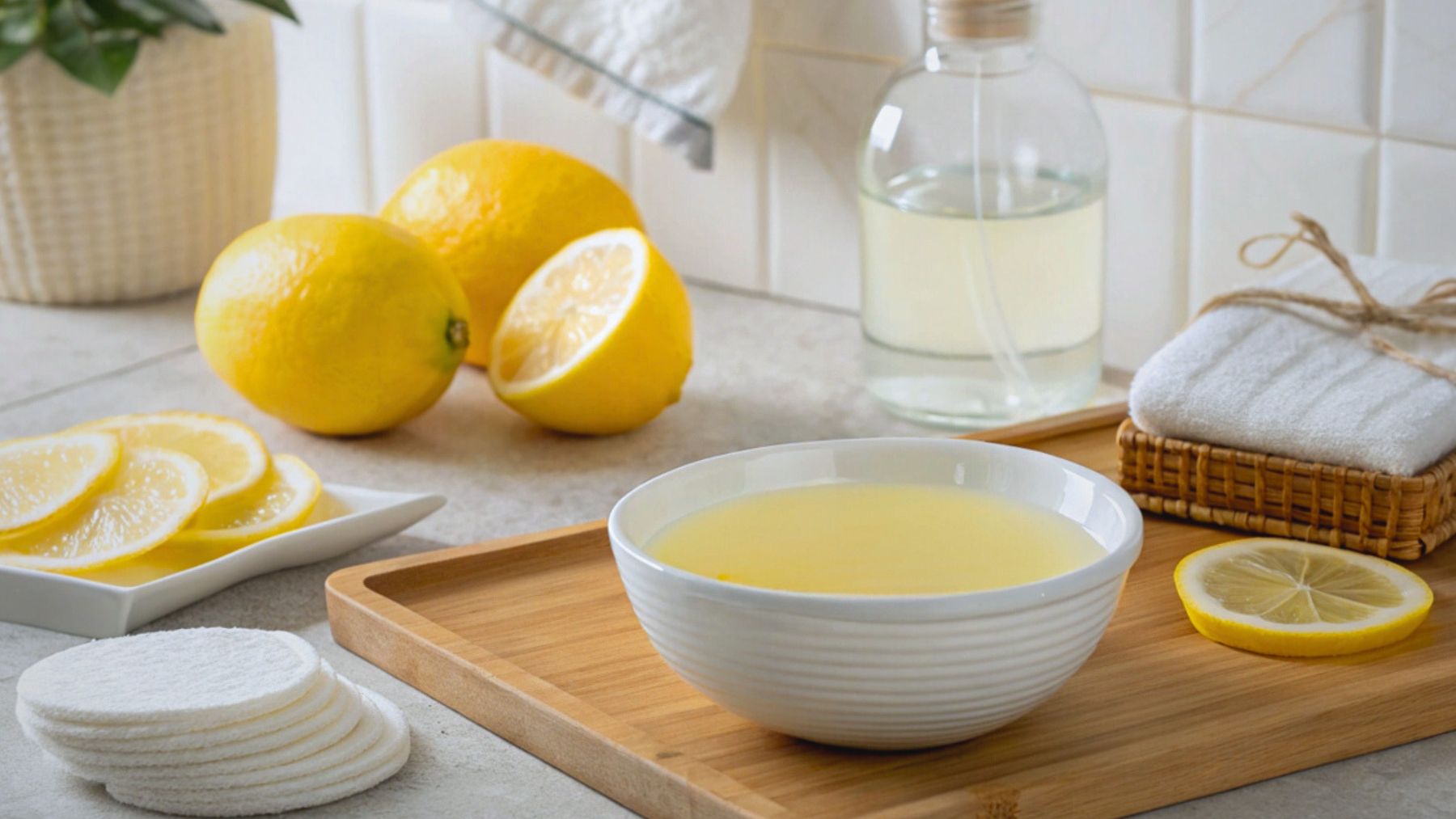Are you looking for a quick, natural solution to brighten your skin and fade those stubborn dark spots? Look no further than lemon juice. This citrus powerhouse has been a go-to remedy for years thanks to its natural properties that promote clearer and glowing skin.
Lemon is packed with vitamin C and citric acid, making it an effective way to lighten spots, combat acne, and tighten your pores. But while lemon juice can work wonders, it’s important to know how to use it safely to avoid irritation. Here’s everything you need to know about this trending skincare hack.
Benefits of using lemon juice on your skin
Lemon juice is loaded with skincare benefits that can help you achieve a brighter and more even complexion. Let’s review its main advantages:
- Lightens dark spots: Thanks to its high vitamin C content, lemon juice works as a natural skin lightener. It helps fade acne scars, age spots, and other skin discoloration.
- Tightens pores: As a natural astringent, it helps shrink pores, leaving your skin feeling smoother and more refined.
- Fights acne: The citric acid helps exfoliate dead skin cells that clog pores and lead to acne. Its antimicrobial properties can also fight bacteria that cause breakouts.
- Boosts collagen production: Vitamin C stimulates collagen, which reduces the appearance of fine lines and gives your skin a youthful glow.
How to safely apply lemon juice to your face
Using lemon juice can deliver noticeable results, but you need to be careful with this potent ingredient to avoid irritation. Here’s how to use it safely:
- Dilute the lemon juice: Fresh lemon juice can be too strong for direct use on the skin. Mix it with water, rose water, or honey to reduce its acidity. For sensitive skin, rose water works best.
- Test it first: Before applying lemon juice to your face, perform a patch test. Dab a small amount of diluted juice on your inner arm and wait 24 hours to check for any reaction.
- Spot treatment: Soak a cotton ball or pad in the diluted lemon juice and gently apply it to the affected areas (like dark spots or acne marks). Let it sit for 10-15 minutes.
- Rinse off: Once dry, wash your face with plain water. Avoid leaving lemon juice on overnight, as its acidity may cause dryness or irritation.
- Use sunscreen: Lemon juice can make your skin more sensitive to the sun, increasing the risk of sunburn. Always apply sunscreen after using lemon juice and avoid prolonged sun exposure.
Lemon juice is a natural and budget-friendly solution for fighting blemishes, fading dark spots, and improving skin clarity. The vitamin C and exfoliating properties make it a great addition to your skincare routine, as long as you use it with care. Remember to dilute the juice, test for sensitivity, and never skip sunscreen during the day when using this remedy.
If you’re looking for an alternative, consider vitamin C serums or other products that offer similar benefits in safer and controlled concentrations. For long-term skin concerns, consulting a dermatologist is always the best option.

